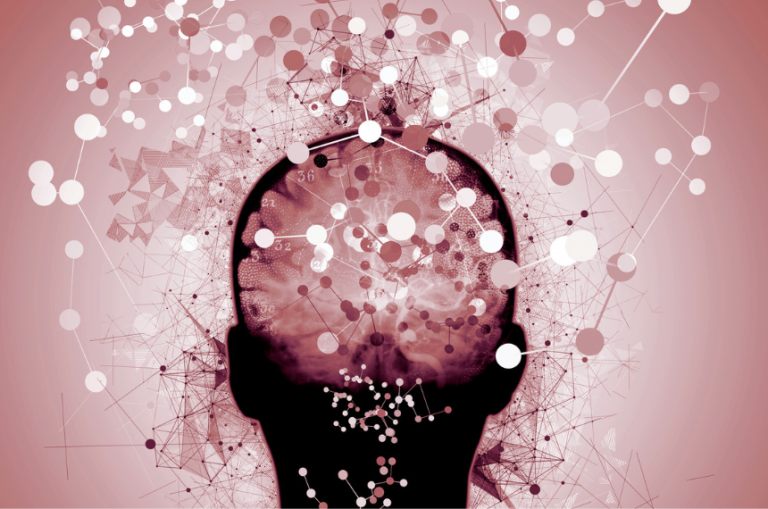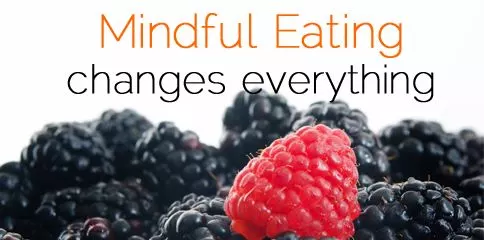“Wisdom tends to grow in proportion to one’s awareness of one’s ignorance.” ~ Anthony de Mello
Nobody is immune to cognitive biases, not even trained psychologists and logicians who thoroughly understand them. We can become more aware of them, but we will never be immune to them. And that’s okay.
We don’t need to be impervious in order to be more open-minded. We just need to be more understanding, more intelligent, and more imaginative in our approach, especially toward beliefs that have not previously been questioned.
Like Robert Anton Wilson cryptically said, “I regard belief as a form of brain damage, the death of intelligence, the fracture of creativity, the atrophy of imagination.”
Indeed, we generally only need to turn the tables on belief in order to combat most cognitive biases.
But if that’s not enough for you, here are six particularly prevalent cognitive biases and how to combat them.
1) Confirmation Bias
“In my experience, everyone will say they want to discover the Truth, right up until they realize that the Truth will rob them of their deepest held ideas, beliefs, hopes, and dreams. The freedom of enlightenment means much more than the experience of love and peace. It means discovering a Truth that will turn your view of self and life upside-down.
For one who is truly ready, this will be unimaginably liberating. But for one who is still clinging in any way, this will be extremely challenging indeed. How does one know if they are ready? One is ready when they are willing to be absolutely consumed, when they are willing to be fuel for a fire without end.” ~ Adyashanti
This one is the grandfather of all cognitive biases. Confirmation bias is a particularly difficult bias to combat precisely because it is fortified by cognitive dissonance.
There is the tendency to focus on information that confirms our preconceptions and preconditioned beliefs, and, as with conservatism, there is the tendency to revise our belief insufficiently when presented with new evidence. So this bias becomes a snake that eats its own tail, and then wonders why it’s always hungry.
Confirmation bias is combated by questioning prepackaged answers and being okay with not even having an “answer” at all. Or by simply having a good sense of humor toward how our particular belief might clash with the belief of others. Or we can simply have an intelligent discussion with someone with a different worldview.
Like Vera Nazarian said, “Before it is too late, go out there and find someone who, in your opinion, believes, assumes, or considers certain things very strongly and very differently from you, and just have a basic honest conversation. It will do both of you good.”
2) Status Quo Bias
“If you end up with a boring, miserable life because you listened to your mom, your dad, your teacher, your priest, or some guy on television telling you how to do your shit, then you deserve it.” ~ Frank Zappa
Also known as the endowment effect, and system justification, status quo bias is the tendency to want things to stay relatively the same by defending and bolstering the status quo. Where existing cultural arrangements tend to be preferred and alternatives are disparaged.
It’s the unreasonable drive to prevent our comfort zone from stretching despite ourselves, even at the expense of self-interest. We have a strong tendency to remain at the status quo, because the disadvantages of leaving it loom larger than the advantages. The result is typically a boring and mundane lifestyle and/or a half-lived life.
Status quo bias is combated by reconditioning our preconditioning and being okay with systemic change. The fundamental understanding that nothing stays the same is important here.
A big-picture perspective will shine light on this bias, shrinking it into a manageable speedbump on the road toward personal enhancement and a broader more compassionate outlook.
3) Neglect of Probability
“I have approximate answers and possible beliefs and different degrees of certainty about different things, but I’m not absolutely sure about anything.” ~ Richard Feynman
This one is probably the most unreasonable of the cognitive biases listed. It’s the tendency to completely disregard probability when making a decision under uncertainty. It’s our inability to grasp a proper sense of peril and risk. Like the probability of being attacked by a shark while swimming in the ocean, versus the probability of getting hit by a car while walking on a sidewalk (significantly more probable).
Or the probability of being involved in a plane crash, versus the probability of getting in an automobile accident (astronomically more probable). The list goes on, and there are even some silly phobias that tend to creep in.
The best way to combat the neglect of probability is to learn about probability and how it affects us and how it effects our reality. The secret of open-mindedness is having a healthy understanding of the concept of probability. Moreover, it is the ability to take things into consideration rather than simply believe in them.
Belief can be blinding, and so it has a high potential to lead to close-mindedness. Take it all into consideration, but then use probability to assess validity. Be less certain with your answers and more sincere with your questions. Above all, laugh at yourself.
Cultivate a good sense of humor. Realize how silly some of your beliefs are and then let yourself off the hook with a good laugh. A healthy sense of humor, more than anything else, can put life in perspective.
4) Curse of Knowledge Bias
“You are only a disciple because your eyes are closed. The day you open them you will see there is nothing you can learn from me or anyone. What then is a Master for? To make you see the uselessness of having one.” ~ Anthony De Mello
This cognitive bias affects teachers, writers, and experts of all kinds. It’s the tendency for better-informed people to find it difficult to think about problems from the perspective of lesser-informed people.
It’s an assumption-clarity problem. Experts assume layman will understand what is being explained, but due to their intimacy with their particular craft or knowledge base, it is difficult for them to bridge the gap between the layman’s lack of knowledge and their clarity.
As hard as we might try to take the point of view of the layman, we cannot completely separate ourselves from the knowledge we have of our particular craft, and therefore we will assume a layman will attribute more value to our explanation than is actually true.
The best way to combat this cognitive bias is to remember that we are all teachers and we are all students. Life is what we teach and life is what we learn. The KISS principle “keep it simple stupid” or “keep it short and simple” can also be useful in this case.
Most explanations work best if they are kept simple rather than made complicated. Concision is wisdom. Take Occam’s Razor to your explanations and remember the wise words of Leonardo da Vinci, “Simplicity is the ultimate sophistication.”
5) Ostrich effect
“Thought can organize the world so well that you are no longer able to see it.” ~ Anthony de Mello
This is a big one, especially in a fundamentally unhealthy, unsustainable culture like the one we’re living in. The Ostrich effect is the tendency to ignore an obvious (negative) situation. The concept comes from the common myth that ostriches bury their heads in the sand to avoid danger.
It’s similar to the metaphorical idiom “the elephant in the room” where an obvious truth is denied or deliberately ignored because to do otherwise would bring up something embarrassing or socially taboo. The ostrich effect just takes this concept straight to the willful ignorance stage.
Combating this cognitive bias can be as simple as taking to heart the wise words of Martin Luther King Jr., “History will have to record that the greatest tragedy in this period of social transition was not the strident clamor of the bad people, but the appalling silence of the good people.”
Or even more succinct, these words by Albert Einstein, “The world will not be destroyed by those who do evil, but by those who watch them without doing anything.”
Powerful indeed. It appears that combating the ostrich effect is as simple (difficult) as digging down deep for the courage that lies within us all, and then using it by not remaining silent in the face of evil while holding accountable those who do it.
6) The Dunning-Kruger Effect
“We’re all fools, all the time. It’s just we’re a different kind each day. We think, I’m not a fool today. I’ve learned my lesson. I was a fool yesterday but not this morning. Then tomorrow we find out that, yes, we were a fool today too. I think the only way we can grow and get on in this world is to accept the fact we’re not perfect and live accordingly.” ~ Ray Bradbury

The Dunning-Kruger effect is the tendency for unskilled individuals to overestimate their ability and the tendency for experts to underestimate their ability. Dunning and Kruger hypothesize that this effect is a consequence of an internal illusion (or illusory superiority) in the unskilled, and an external misperception in the skilled.
In their own words, “The miscalibration of the incompetent stems from an error about the self, whereas the miscalibration of the highly competent stems from an error about others.” Ignorance spins around in the same tiny comfortable circle of minute knowledge.
Intelligence is expansive and subsumes ignorance while making us more aware of our own ignorance. The more we learn, the more we realize how much we still have to learn. Like Shakespeare expressed in As You Like It, “The fool doth think he is wise, but the wise man knows himself to be a fool.”
Anybody who has watched the movie Idiocracy will understand this cognitive bias. It’s a movie about a futuristic dystopian world where anti-intellectualism has run rampant and intellectualism has become obsolete. Some might argue that we’re already in such a state.
Isaac Asimov said it best, “Anti-intellectualism has been a constant thread winding its way through our political and cultural life, nurtured by the false notion that democracy means that ‘my ignorance is just as good as your knowledge.’”
Combating this bias can be as easy (difficult) as not taking ourselves too seriously while at the same time being sincere with our knowledge and open to criticism. Self-interrogation, healthy skepticism, and questioning to the nth degree are key.
Acknowledging that there is always more to be learned can go a long way. Question what you think you know, but also don’t be afraid to share what you think you know.
Just remember the wise words of Richard Feynman, “People search for certainty. But there is no certainty. People are terrified—how can you live and not know? It is not odd at all. You only think you know, as a matter of fact.
And most of your actions are based on incomplete knowledge and you really don’t know what it is all about, or what the purpose of the world is, or know a great deal of other things. It is possible to live and not know.”
Image source:





 “Technology is a gift of God. After the gift of life it is perhaps the greatest of God’s gifts. It is the mother of civilizations, of arts and of sciences”. ~ Freeman Dyson
“Technology is a gift of God. After the gift of life it is perhaps the greatest of God’s gifts. It is the mother of civilizations, of arts and of sciences”. ~ Freeman Dyson










 Talent is merely handed to us by fate, but true genius is wrestled out of the arms of the gods and torn from the teeth of demons. And that takes grit. That takes tenacity. That takes a resolve that dissolves boundaries into horizons. In the spirit of true grit, here are five reasons why perseverance trumps talent.
Talent is merely handed to us by fate, but true genius is wrestled out of the arms of the gods and torn from the teeth of demons. And that takes grit. That takes tenacity. That takes a resolve that dissolves boundaries into horizons. In the spirit of true grit, here are five reasons why perseverance trumps talent.
 Quantity should be primary and quality secondary. It seems like the opposite should be the case, but it’s not. The richness of our lives shrink or expand in proportion to our ability to make quantity primary and quality secondary. This is because if we focus too much on having talent, then our creativity is stifled by thoughts of perfection.
Quantity should be primary and quality secondary. It seems like the opposite should be the case, but it’s not. The richness of our lives shrink or expand in proportion to our ability to make quantity primary and quality secondary. This is because if we focus too much on having talent, then our creativity is stifled by thoughts of perfection.

